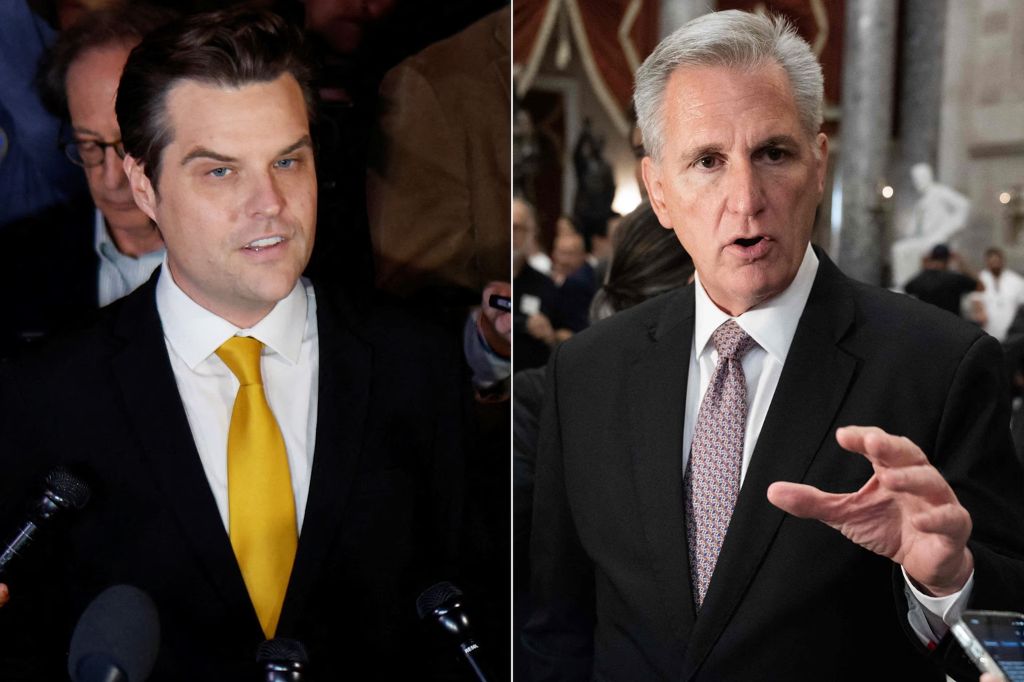In a bold political maneuver, Republican Representative Matt Gaetz has tabled a motion to unseat Kevin McCarthy from the esteemed position of House Speaker, as reported by MSNBC. The House is now under the clock, with a mere two legislative days to cast their votes on this pivotal motion.
This audacious move by Gaetz is not without its reasons. He has been vocally critical of McCarthy’s recent legislative decisions, particularly his reliance on Democratic votes to push through legislation aimed at preventing a government shutdown. Gaetz’s concerns don’t end there. He has also expressed reservations about the potential of holding votes on providing aid to Ukraine, further underscoring his diminishing confidence in McCarthy’s leadership.
What is the role of a House Speaker?
For those unfamiliar with the intricacies of U.S. politics, the Speaker of the House holds a position of immense significance in the United States House of Representatives. Elected by the full House membership, the majority party’s voting strength typically ensures that one of their members occupies this role. Notably, the Speaker stands second in the presidential succession line, right after the Vice President.
Also read: Moloco and Ipsos Unveil Groundbreaking Insights in Mobile App Performance Marketing
The Speaker’s responsibilities are manifold:
- Spokesperson: As the face of the majority party in the House, the Speaker is tasked with articulating and championing the party’s agenda. They liaise with other Washington officials and communicate legislative actions to the public.
- Manager: The Speaker plays a pivotal role in managing business on the House floor. They are adept at navigating the labyrinth of legislative rules, structuring House debates to favor their legislative priorities. Given the vastness of the House of Representatives, strict adherence to rules and procedures is paramount.
- Administrator: From overseeing accounting to procurement, the Speaker’s administrative duties encompass the entire operational spectrum of the House.
Over the years, the role of the Speaker has seen its dynamics change, with power oscillating between the Speaker and other party leaders. Since the 1990s, there has been growing criticism, with many viewing the Speaker as overly partisan and wielding excessive power, often at the expense of the minority party.
Who was the first Speaker of the House?
The annals of U.S. history record Frederick Muhlenberg as the inaugural Speaker of the United States House of Representatives. His election on April 1, 1789, marked the day the House organized itself, heralding the commencement of the 1st Congress. Muhlenberg’s tenure saw him serve two non-consecutive terms: 1789–1791 during the 1st Congress and 1793–1795 in the 3rd Congress.
Kevin McCarthy: The current Speaker of the House
As of now, the gavel of the House of Representatives is wielded by Kevin McCarthy. His election on January 7, 2023, marked the onset of the 118th Congress. As the Speaker, McCarthy shoulders the responsibility of leading the House and stands as the immediate successor to the President after the Vice President.
In light of Gaetz’s motion, the political landscape is rife with anticipation. The coming days will reveal whether McCarthy retains his position or if the House will witness a seismic shift in its leadership.
















